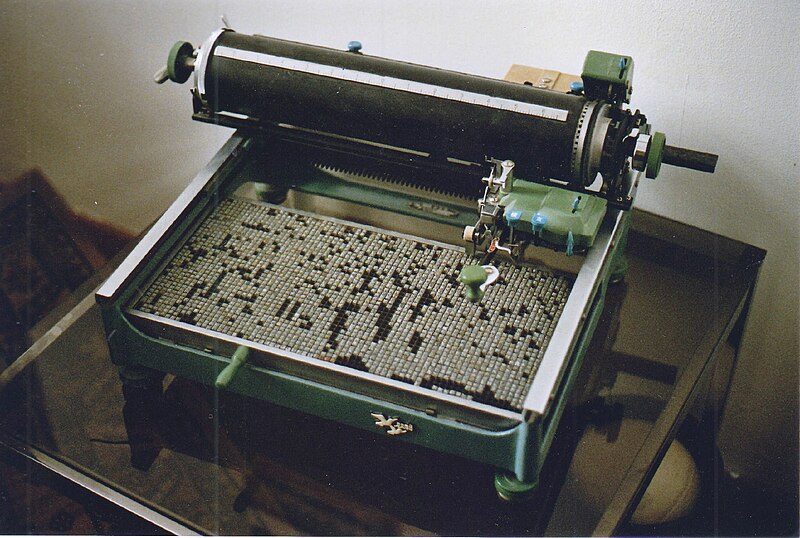As early as the 1700s there were prototypes for the English typewriters. But the Chinese typewriters were only made during the 1940s. No, don't go blaming Westernizers being too slow to reach China. China has been under several spheres of influence of Western countries as early as the 1800s. It's because Chinese typewriters were impossible to make due to the complexity of the Chinese language and characters. For instance, did you know that a typical commercial Chinese typewriter back then has 2,450 unique characters. Yep, you read that right. 2,450 unique buttons. And you think the QWERTY keyboard has too many keys, huh?
Apparently, there was a patent for Chinese typewriters before that only has 4 to 5 rows of character keys (akin to the Western equivalent) that can be pressed together to form a multitude of 90,000 unique characters. The commercial Chinese typewriter pictured above can only do upto 30,000 unique Chinese characters and looks too different from its Western cousins. Too bad the patent for the 90K character typewriter didn't fly off to mass production due to some financial issues of the inventor.
Fast forward to today, China has benefited from computer softwares that allow them to type in Chinese characters seamlessly without needing to lookup 2450 hardware keys. Just a well-sized keyboard that can combine single characters to form more complex ones. However, porting this technology to touchscreen phones does not necessarily guarantee fluid Chinese text writing. In fact, some find it awkward to tap Chinese on phones. I haven't read much, but I guess, it's more convenient to the Chinese if they can simply write these characters themselves. Which brings me to the "stylus."
Once upon a time, touchscreen phones sport resistive screens, or screens that are sensitive to pressure rather than the body's electric signatures (like the iPhone's screen). These resistive screens allow the use of styli for text inputs. Over time, improvements in technology have eliminated the need for the stylus. These screens are called capacitive screens. They do not respond to styli/pressure but more to the body's electric signals. These capacitive screens support Chinese writing poorly. And as I mentioned, in China, tapping screens ain't really the way to write electronically--especially since the Chinese vocabulary is harder to predict. The styli has suited the Chinese people well. Unfortunately, styli for capacitive screens don't work as good as the styli for resistive screens do. And this makes China a bit of a complicated market for mobile phones.
Why did I go to so much research to write all these? Tried and tested solutions. Most of the times, we don't challenge them. They're tried and tested. Like the capacitive screen. There ain't no better thing for phones than the capacitive screen. But being in IT has helped me understand that not all tried and tested solutions will work all the time, some clients, like the market in China, have unique requirements than what the tried and tested solution can address.
Same thing goes in life. There are some things that no matter how tried and tested, won't work for everyone. Today, the Minnesota Planetarium Society released a statement that the zodiac constellations have changed positions by a month because of the moon's gravitational pull and that we now have 13 signs of the Zodiac instead of the usual 12. A lot of people have reacted wildly at it. And for a good reason. People believe in the Zodiac signs and Astrology in general and feel at times defined by them.
To speak my mind without inhibitions, I'd like to think out, like the Chinese, why should we let ourselves be defined and shaped by technology, or in this sense our zodiac sign. Like the Chinese who let the technology redefine itself for them, why don't we just redefine the stars. Whether you have been moved from one sign to another, or finds yourself under Ophiuchus, you are your own person, shaped by the people you met and the experiences you have gathered. Nothing can define you better than the scars (or lack thereof) in your heart, and the callouses (and the lack thereof) in your mind.

No comments:
Post a Comment